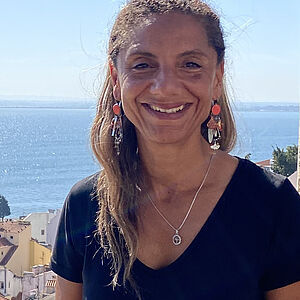
Yvonne Delevoye
- FACULTE DE PSYCHOLOGIE, DES SCIENCES DE L'EDUCATION ET DE LA FORMATION
- DEPARTEMENT PSYCHOLOGIE
Présentation
Membre senior 2023 de l'Institut Universitaire de France (IUF)
Titre: Conception d'environnements olfactifs pour guider vers la découverte d'un plaisir de l'effort
Lorsqu'ils se sentent tristes, les individus ne perçoivent pas le monde de la même manière que lorsqu'ils sont heureux. La perception que les gens ont du monde est modulée par leur état affectif en raison de son effet sur la tension musculaire, l'orientation attentionnelle et l'éveil physiologique. Dans mes travaux, j'adopte l'approche incarnée de la psychologie cognitive pour mieux comprendre comment les attitudes à l'égard de l'effort sont associées à des réponses affectives (aimer ou ne pas aimer) et modulent l'intention d'agir ainsi que la façon d'interagir. Nous utilisons les odeurs pour influencer la dynamique attentionnelle, les états d'éveil corporel et cérébral. L'objectif à terme est de trouver le dosage parfumé ambiant des environnements permettant de favoriser l'émergence du plaisir pendant l'effort.
Title: Designing Olfactory Environments to Help Healthy Adults Discover the Pleasure of Effort
When they feel sad, individuals do not perceive the world in the same way as when they are happy. People's perception of the world is modulated by their affective state due to its effect on muscle tension, attentional orientation, and physiological arousal. In my research, I adopt the embodied approach of cognitive psychology to better understand how attitudes towards effort are associated with affective responses (I like vs. I dislike). These phenomena are studied in relation with modulations in the intention to act, but also in the way one interacts with others. Ambient odors are used to influence attentional dynamics, bodily, and brain arousal states. The ultimate goal of my work is to determine the delicate fragrant dosage to promote in work environments the emergence of pleasurable experiences of physical and cognitive effort.



